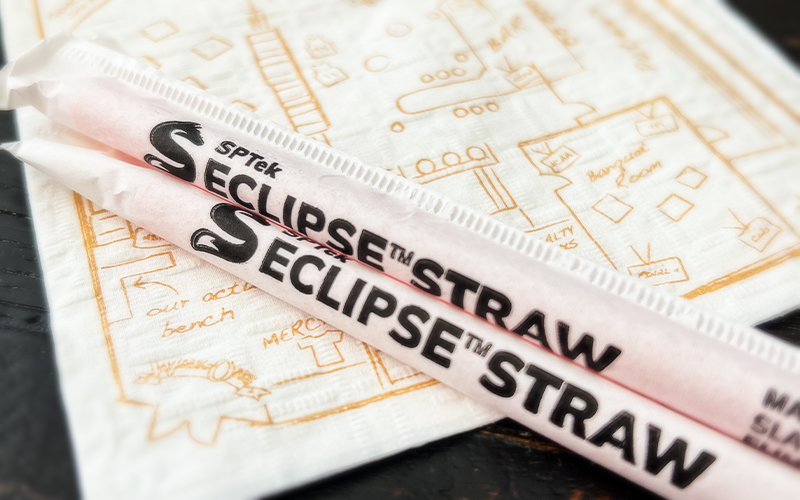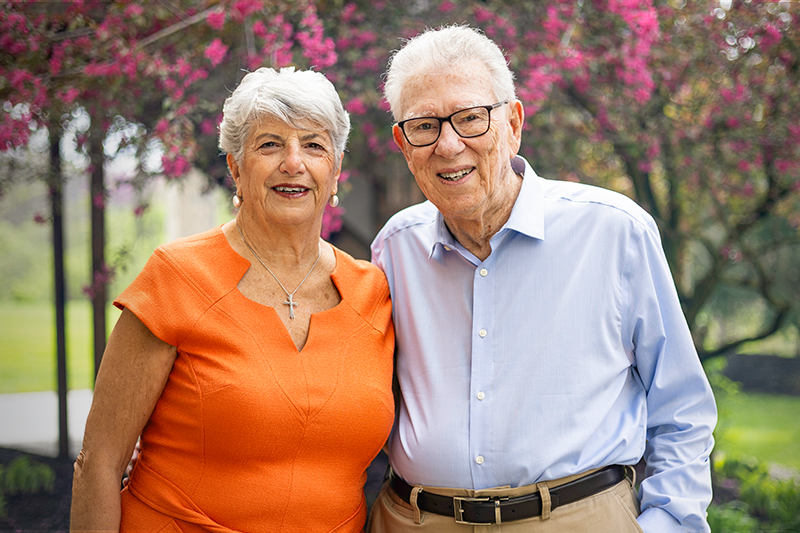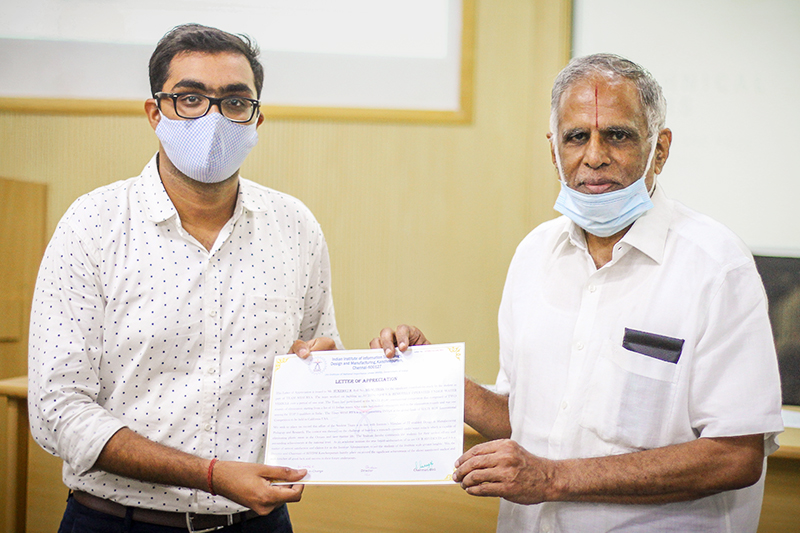As students returned to campus for the start of the spring semester, they found many updates awaiting them on the ground floor of the Purdue Memorial Union.
In addition to seeing the newly opened Atlas Family Marketplace, students may have also found themselves drinking from a straw that will completely bio-assimilate into carbon dioxide, water, and biomass in 12–24 months. Made in the U.S. by Smart Plastic Technologies, 280,000 of these SPTek ECLIPSE™ straws were generously donated by alumni and Purdue President’s Council pinnacle members Dave and Judy Hale for use at campus eateries. After having owned a biodegradable plastic bag company for decades, Dave was particularly impressed by the potential of this revolutionary plastic. “There are so many world problems—all we can do is take them on one at a time,” Dave says.
While conventional plastic straws take more than 450 years to break down, these straws are made with a patent-pending technology that does the job in months, not centuries. Many large companies are already taking advantage of the new tech, especially those in the disposable waste industries. We are grateful to have such an exciting advancement available on our campus.
The Chaney-Hale Hall of Science is named for their contributions, as is the head’s suite in the School of Electrical and Computer Engineering.
Thank you, Dave and Judy!


